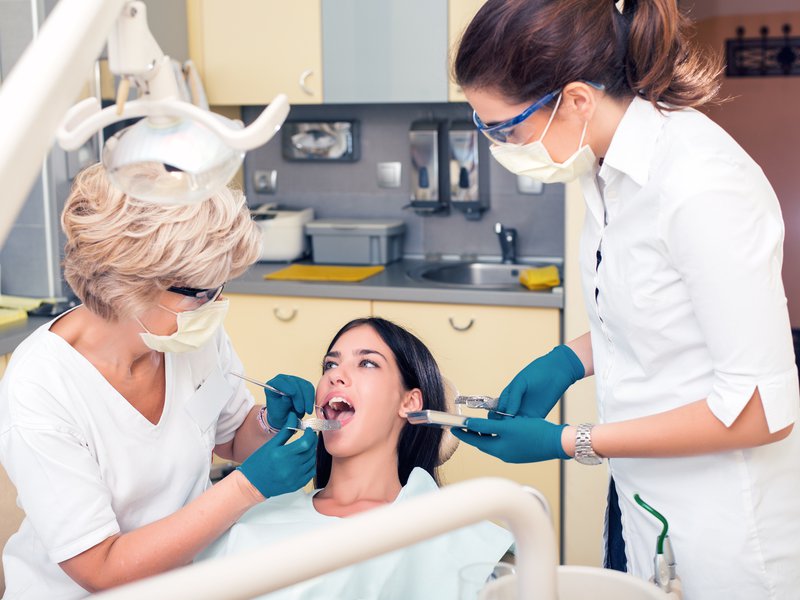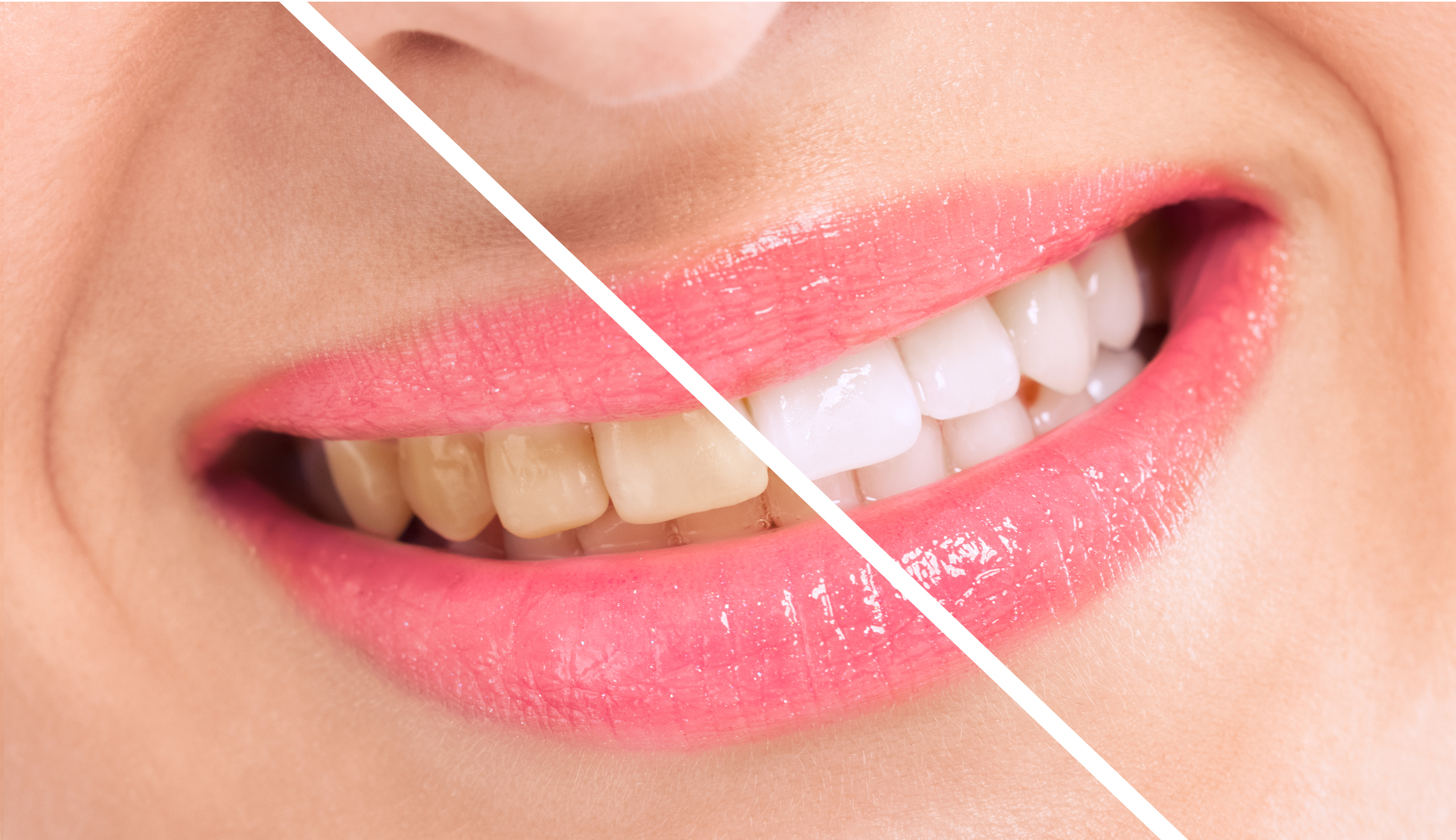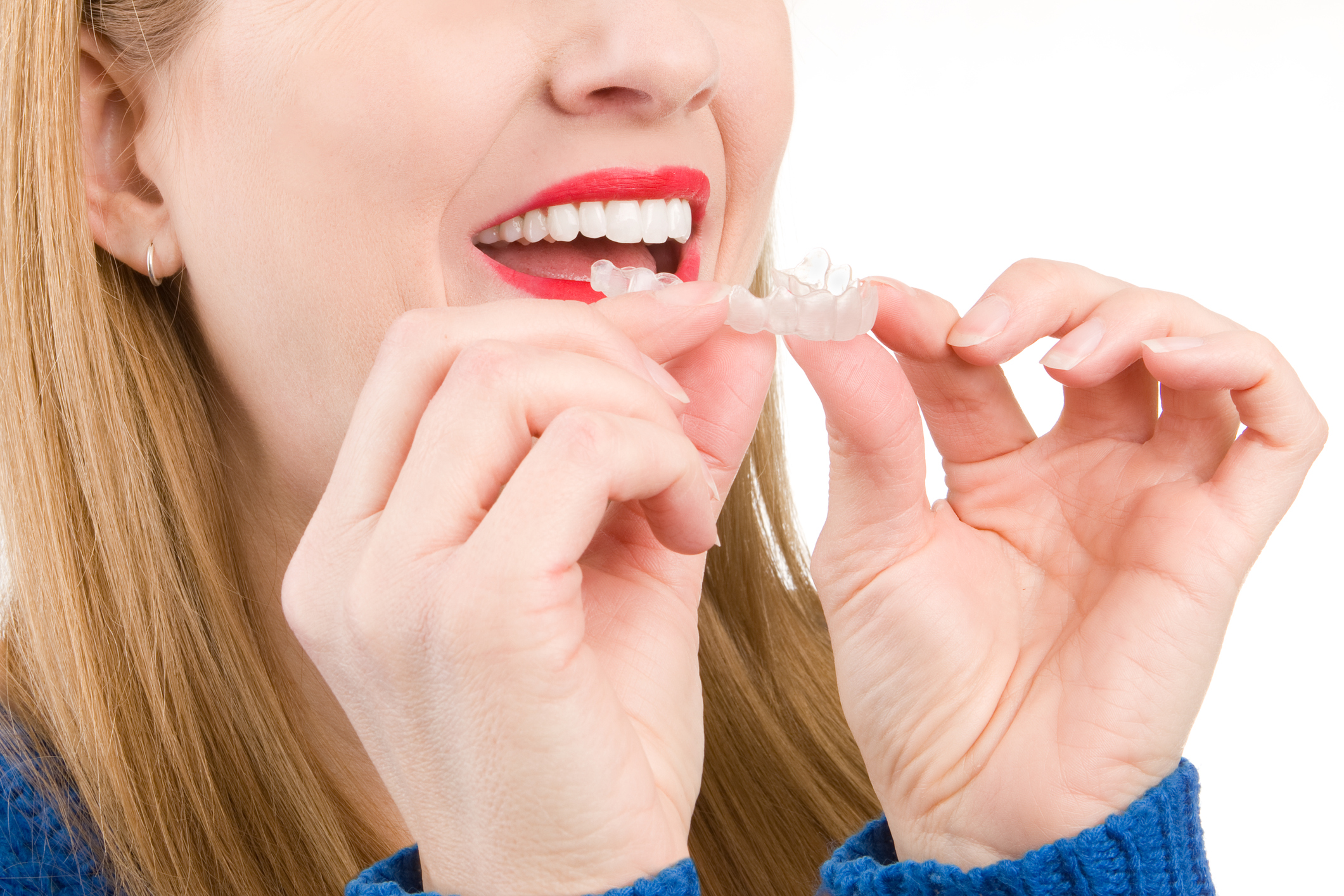5 Dental Procedures to Improve Your Oral (and overall) Health

While eyes may be the window to your soul, your mouth can sometimes be indicative of your physical and mental health. Poor oral health has been linked to many systemic diseases such as diabetes, coronary heart disease etc.
Aside from this, having teeth and healthy gums are true blessings that not everyone is lucky enough to have and need to be treated as such. They help you break down your food and grant you the ability to flash a bright smile to all your peers and opponents.
That being said, it should be agreed on that those pearly whites of yours DESERVE the proper treatment required to maintain their health and performance.
Dentists and the entire practice of dentistry exist for this reason. After gathering enough information and reading this article, we hope you may be convinced that it may be time to start searching for “ dentists near me ”. In the case, you aren’t a client of any particular clinic or simply have not visited for quite a while.
1. Teeth Whitening
When teeth whitening is mentioned, people tend to immediately think of the classic and blindingly bright Hollywood smile the red carpet has seen one too many times.
While it may seem fine, this image in itself is a subject of slight controversy; sometimes repelling folks from whitening their own. There are those who adore the outstanding look and others who dislike what they believe to look a little too fake/unnatural. It may seem to be clear as day that the audience this procedure targets is most certainly the former.
However, believe it or not, both of these opinions are respected and taken into account when undergoing the actual process of lightening those choppers. Neither side is excluded.
Unlike those homemade or store-bought bleaching treatments, the level of “whiteness” so to speak, achieved in a session (conducted by professional dentists Richmond Hill) is chosen by the clients and not left to mere luck. Besides, when one is looking for a thorough whitening that rids teeth of discoloration and the like, seeking a dentist may be the only safe, fast, and true option out there.
Using over-the-counter remedies, you carry the risk of dealing harmful damage to your mouth’s gum tissues. This consequently raises your teeth’s sensitivity to various foods and drinks. Think of the sensation you get when biting into a scoop of ice-cream but for every cold food you consume. Not a pleasant sensation.

"How is professional teeth whitening done?"
Professional bleaching is the most used method in the industry. Before anything takes place, your dental team will conduct a thorough examination of your chompers to judge whether or not you are suitable for the operation.
Throughout the treatment, a team of experts will be supervising everything to make sure all is well. Below are the general steps of the process:
- A protective substance is placed over the gums
- The teeth are then coated with a whitening agent. This is usually a mixture containing varying levels of hydrogen peroxide,
- A specialized light laser will shine over the applied gel to activate the ingredients and quicken the process.
"How long does professional teeth whitening take?"
Teeth bleaching with the supervision of a dentist in-office is typically done within 30-90 minutes.
"How many appointments are needed to whiten teeth?"
Depending on the difference between the starting and desired shade, it will take approximately 1-3 appointments. Factors of influence include the severity of teeth stains, time between each appointment, the technique used…
"Can this be done at home?"
Yes, it can. Upon request, your dentist will create customized mouthpieces specifically to whiten your teeth. You will be directed to add the whitening gel to the close-fit mouthpiece and wear it for several or more hours a day once at home.
The entire process is usually completed within a mere week or two. However, it is possible that one requires more time.
"What are the benefits of this dental procedure?"
Many clients notice the following advantages after whitening their teeth :
- A boost in self-confidence. The way you perceive yourself can have a tremendous impact on how you end up projecting yourself. When you see that you look better, you end up feeling better and more confident, thanks to the decrease of insecurities.
- An enhanced appearance. This should come as no surprise. Once removing unnatural stains on your pearly whites, your appearance is almost immediately elevated a notch.
- An increase in positivity. Possessing beautiful teeth that radiate light, unconsciously smiling begins to happen more frequently. According to the research, when you smile your brain releases feel-good neuropeptides and endorphins such as serotonin. These have a positive impact on the body by combating accumulated stress, lowering high blood pressure, slowing down your resting heart rate, and much more. Positivity vibes all around!
- Early spotting of underlying issues. Coming in for a whitening treatment may leave you more surprised than you would think. Discoloured teeth can sometimes be an indicator of tooth decay and issues with the root canal. The dentists Richmond Hill has to offer are all well-trained enough to identify these problems and find a solution to repair the teeth upon examination.
2. Dental Implants
It is not uncommon to have encountered situations where someone needs to fill a gap in their mouth or replace one or more teeth. This is where dental replacements come into the equation.
"What is a dental replacement?"
A dental replacement is essentially a substitute for a decayed tooth structure or a missing tooth. Dental implants fall under this term.
"What are dental implants?"
Implants are metal posts surgically placed right underneath your gums and fused into the jawbone. They are used since these metal implants provide a secure and stable base that can support false teeth.
"Why are they utilized?"
Dental implants present themselves as a viable, durable, and safe option to those who have lost a tooth or teeth from injury, periodontal disease, decay etc.
There exist plenty of advantages dental implants bring about to clients in need, such as:
- Increased comfort- The usage of removable dentures can cause some discomfort. Fixed dental implants eliminate this side effect.
- Facilitated eating- This surgically positioned tooth replacement is designed to function as a real tooth would. You can easily chew as much as you wish without having to deal with the issue of sliding dentures or an incomplete set of ivories.
- More convenience- Dental implants are fixed in place helping you avoid awkward scenarios dealing with messy adhesive issues.
Explore further
3. Braces and Invisalign
When dentists identify the need to realign teeth and general structure of a jaw, the patient is usually informed of the necessity to bring specialized external contraptions (such as Invisalign or braces) into their life.
"Who can use the help of these realigning dental contraptions?"
Any patient with orthodontic problems such as crooked or crowding teeth, an overbite, an underbite, a weak jaw, incorrect jaw position etc.
If these issues are left ignored and untreated the situation concerning the client’s oral health can turn detrimental. He/she/they will be left prone and vulnerable to gum disease, tooth decay, headaches and much more.
"When should you get braces or Invisalign?"
This is quite a popular question among many clients.The ideal timeframe is considered to be from 10-14 years since the body is in development; in the end making teeth straightening easier. However, you can benefit from braces or Invisalign at any age.
"What is the duration of the dental procedure?"
Depending on varying factors such as the severity of the initial problem, the age of the patient, the treatment plan… the entire process may take more or less time than the average of 12 to 24 months with braces.

"What are some benefits of braces and/or Invisalign?"
Aside from the advantage of making teeth seem straighter, these specialized inventions have some other lesser known benefits to them including:
- Enhanced speech- Teeth that have shifted over the years can greatly impair the pronunciation of certain words. When this problem is corrected, patients will notice they have more control over their tongue.
- Improved digestion- Your ivories play an important role in for the digestive system. Their main function is to break down food into smaller particles in order for your food to pass through your intestines with ease. This quality of theirs is sometimes dulled and impeded when the teeth are not properly aligned.
- Increased jaw symmetry- Braces and Invisalign both work to bring alignment back to the jaw. As a result, the proportions of the face and the maxilla become more symmetrical.
- Boosted confidence- A great smile can certainly have a direct and positive impact on the confidence one portrays.
4. Teeth Cleaning
There are many valid reasons why this dental procedure is recommended at least twice a year. With all the benefits it provides, there is little to no doubt that regular teeth cleaning does wonders for the oral health of clients.
Now before delving into those advantages, let us first take a look at what this process is and the steps of this procedure listed below.
"What is a teeth cleaning?"
Professional dental cleanings are mainly focused on the removal of plaque and are important for the upkeep of anyone’s oral hygiene .
They are twice as thorough and effective than your average at home brushing and flossing routine. The approach and tools utilized, meticulously cleanse and eliminate any leftover buildup of plaque or tartar that could potentially lead to discolouration, gum disease and plenty more...
"What are the steps of a dental cleaning?"
The general steps of this dental procedure can be summarized in six steps.
- Examination - Prior to taking any action, a trained dental hygienist and perhaps the dentist will inspect the mouth. Their eyes will be assessing the situation while looking out for symptoms of any health problems (such as inflammation or tooth decay), thanks to the help of a small mirror. From there they will improvise and act accordingly.
- Removal of tartar and plaque- When certain areas of the teeth are not brushed and flossed properly, plaque will begin to form. Over time, this plaque will begin to harden and turn into tartar without you even knowing it. This leaves you at greater risk for gum disease and tooth decay. If any of this is found, it will be scraped away using a scaler. It may screech a little, but rest assured that it is in no way harmful.
- Brushing - At this point, your dentist will start brushing everything clean with an electric toothbrush and a gritty toothpaste. This is to ensure your ivories are utterly cleansed of any bad bacteria.
- Flossing - Going between every nook, cranny, and crevice, the experts are sure to remove any possible remaining dirt (or toothpaste) out by flossing.
- Rinsing - Swish, gargle, rinse and spit. A straightforward step indeed.
Treating with Fluoride - Depending on the client’s request and coverage, certain dentists will cover the teeth with a gel mouthpiece for about a minute. This measure aids in the prevention of cavities for several months after the appointment.
"What are the benefits of this dental treatment?"
Certain benefits that come with a professional cleaning are :
- Stain removal
- Tooth decay prevention
- Cavity prevention
- Early spotting of oral health problems
"How long does it take?"
Everything should take no more than 30-60 minutes.
People also search
5. Fillings
Fillings - sometimes they’re noticeable, other times it’s a challenge to discern the real from the artificial. But regardless of their properties and appearance, they generally serve the same purpose.
"What is a filling?"
A filling is basically a specific material that is inserted in the tooth to occupy the space where decayed tooth material (a cavity) once resided.
"What is the purpose of a filling?"
A filling is supposed to restore the original form and function of a tooth while preventing further decay by blocking the entrances of bacteria.
"What does the filling replacements procedure entail?"
If a cavity has been spotted and your dentist decides to fill it in, he/she/they will first clean out the cavity and the decay from the (already numbed) area using a drill, an air abrasion tool, or a laser. Right after, your dentist will begin inserting the chosen material into the gap.
Final Words Of Wisdom
With the world advancing in technology, the practice of dentistry is constantly evolving. In comparison to hundred years ago, there now exist so many dental procedures that will help you improve your oral health in a relatively short period of time.

However, one thing still remains the same. It is the fact that frequent and regular checkups with the dentist are necessary to keep everything in check and performing properly.
No matter how much you want your smile to change, it won’t unless you take action and make yourself accountable and start attending your yearly appointments.
If you are in the area, find yourself a Richmond Hill dentist to maintain your oral health. Start searching, take the initiative, and be responsible for the well-being of your smile. Do not neglect it or you will regret it.
